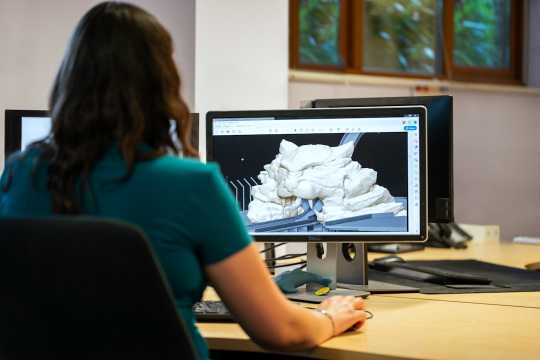Artificial Intelligence (AI) has revolutionized the field of engineering in recent years, transforming the way engineers work and innovate. From designing new products to optimizing manufacturing processes, AI has had a significant impact on every aspect of engineering. In this blog post, we will explore the various ways in which AI is reshaping the field of engineering and the implications it has for the future.
One of the most significant impacts of AI on engineering is its ability to streamline the design process. With the help of AI-powered design tools, engineers can quickly generate and test multiple design iterations, allowing them to optimize their designs for performance, cost, and efficiency. This has resulted in faster product development cycles and more innovative designs that would have been impossible to achieve through traditional means.
AI has also revolutionized the way engineers approach problem-solving. By leveraging machine learning algorithms, engineers can analyze vast amounts of data to identify patterns and trends that would have been difficult to detect using traditional methods. This has enabled engineers to make informed decisions based on data-driven insights, leading to more efficient and effective solutions to complex engineering problems.
In addition to improving the design and problem-solving processes, AI has also had a significant impact on the manufacturing side of engineering. AI-powered robots and machines have enabled engineers to automate repetitive tasks and optimize production processes, resulting in higher efficiency, lower costs, and improved quality control. This has allowed engineers to focus on more strategic tasks and innovation, rather than being bogged down by mundane and repetitive tasks.
Another area where AI is making a significant impact on engineering is in predictive maintenance. By analyzing data from sensors and machines, AI algorithms can predict when equipment is likely to fail and recommend maintenance actions to prevent downtime. This has helped engineers to proactively address maintenance issues before they escalate, leading to improved equipment reliability and reduced maintenance costs.
AI has also transformed the field of structural engineering, particularly in the area of building design and analysis. By using AI algorithms to analyze complex structural models, engineers can optimize building designs for safety, cost, and sustainability. This has led to the development of more resilient and efficient buildings that can withstand various environmental conditions and natural disasters.
Furthermore, AI has enabled engineers to unlock new possibilities in materials science and nanotechnology. By leveraging AI algorithms to model and simulate the behavior of materials at the atomic level, engineers can design new materials with specific properties and functionalities that were previously unattainable. This has opened up new opportunities for developing advanced materials for various applications, including aerospace, healthcare, and electronics.
While the impact of AI on engineering has been largely positive, it also presents challenges and implications for the future of the field. One of the main concerns is the potential displacement of human workers by AI-powered machines and robots. As AI becomes more advanced and capable, there is a risk that certain engineering jobs may become obsolete, leading to a shift in the labor market and a need for retraining and reskilling.
Another challenge is the ethical implications of AI in engineering. As AI algorithms become more autonomous and self-learning, there is a need to ensure that they are developed and used responsibly, taking into account ethical considerations such as bias, transparency, and accountability. Engineers must be mindful of the potential risks and limitations of AI technology and work towards developing ethical guidelines and standards for its use in engineering.
In conclusion, the impact of artificial intelligence on engineering has been profound, transforming the way engineers work and innovate across various disciplines. From design optimization to predictive maintenance, AI has revolutionized every aspect of engineering, leading to more efficient, sustainable, and innovative solutions. However, it is essential for engineers to be mindful of the challenges and implications that AI presents for the future of the field and work towards addressing them responsibly. By embracing AI technology and leveraging its capabilities, engineers can continue to push the boundaries of innovation and shape the future of engineering for generations to come.














